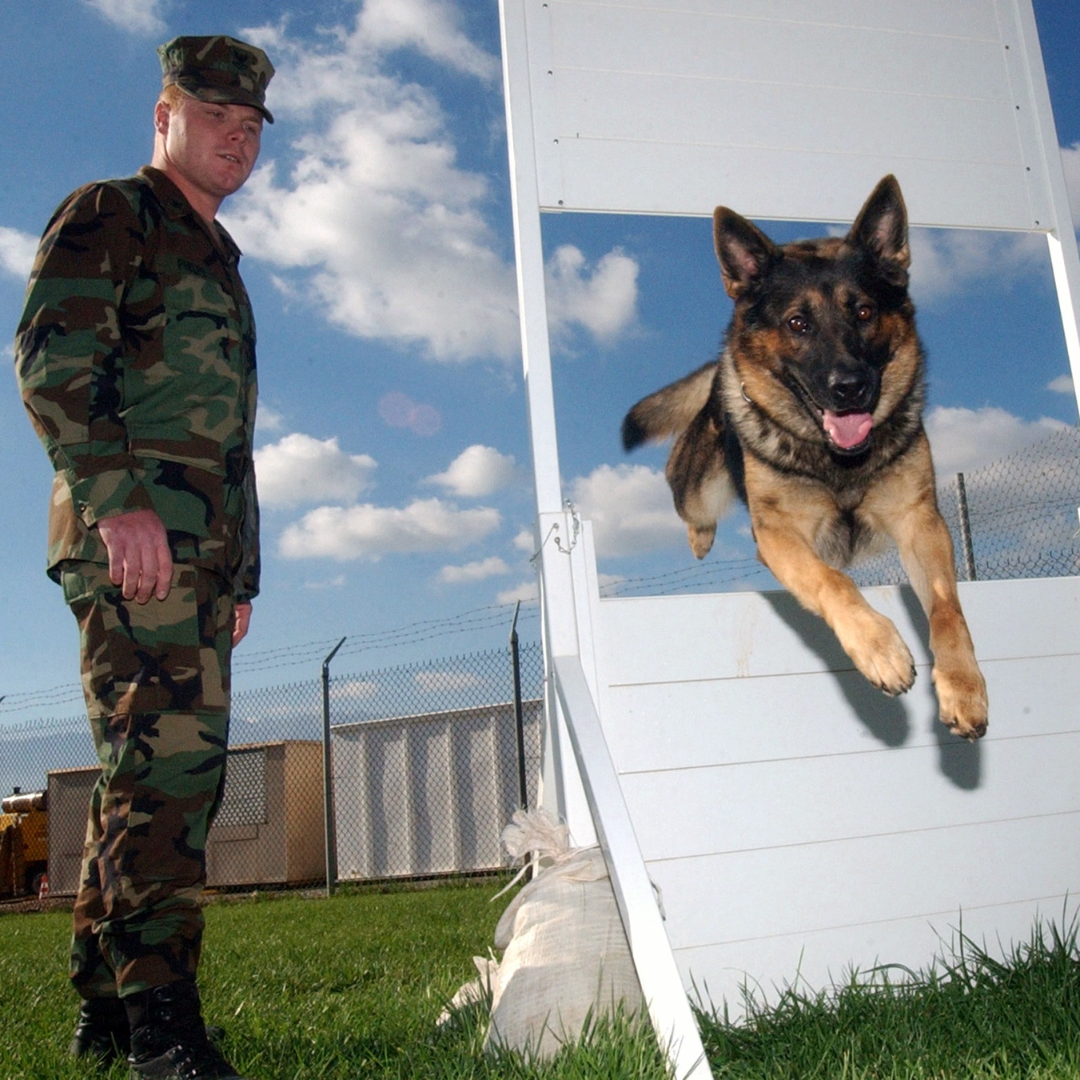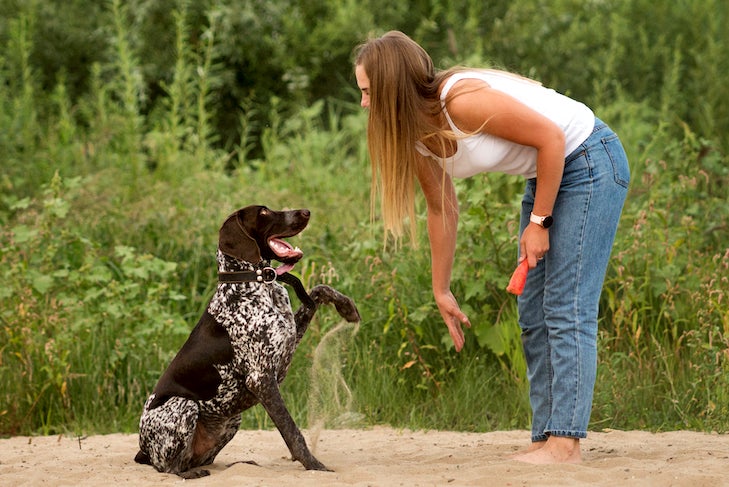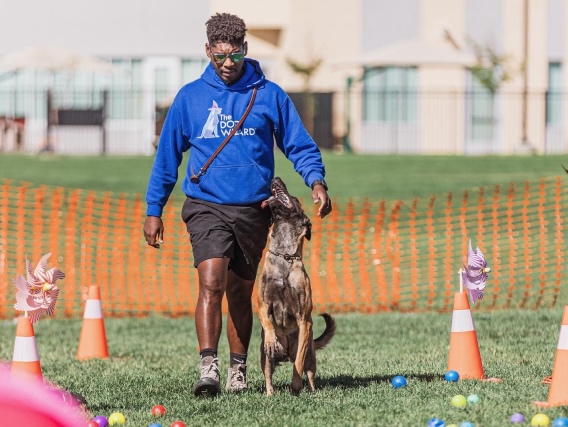Unlock Your Pet dog's Potential: Proven Pet Dog Training Techniques for Success
Effective pet training is a nuanced process that pivots on understanding canine behavior and employing clinically backed methods. By integrating positive reinforcement, developing clear commands, and focusing on socializing, canine proprietors can cultivate a productive relationship with their pet dogs.
Recognizing Pet Actions
Understanding dog habits is necessary for efficient training and fostering a positive partnership in between pets and their owners. A thorough grasp of canine body movement, articulations, and social interactions is essential for acknowledging their demands and feelings. Pets communicate mostly with non-verbal signs; for instance, a wagging tail may indicate enjoyment, while pinned ears can signify concern or entry.

In addition, environmental factors play a substantial role in forming a dog's actions. Modifications in regular, brand-new surroundings, or the visibility of unfamiliar individuals can lead to stress or anxiety in canines. Recognizing these triggers makes it possible for owners to alleviate damaging responses and create appropriate training strategies.
Ultimately, a deep understanding of pet dog habits lays the foundation for effective training techniques, boosting both actions and the general bond between the pet dog and its owner. dog training charlotte nc. This knowledge is essential for cultivating a well-adjusted, happy canine friend
Positive Reinforcement Techniques
Efficient training counts greatly on positive support methods, which have been shown to yield significant lead to shaping preferred actions in pets. This strategy entails compensating a canine for showing certain habits, therefore enhancing the chance that these actions will be duplicated. Rewards can take different types, including treats, appreciation, playthings, or playtime, depending upon what encourages the specific dog.

It is vital to slowly terminate rewards as the canine learns the behavior, transitioning to recurring reinforcement. This approach maintains the behavior with time while avoiding dependency on continuous rewards. By concentrating on positive support, fitness instructors can grow a relying on connection with their pet dogs, promoting a healthy and cooperative training environment that enhances total obedience and performance.
Developing Regular Commands
A fundamental facet of effective canine training is the establishment of regular commands. Consistency in commands is critical for effective interaction between the fitness instructor and the pet. When commands are uniform, dogs find out to link particular words with desired actions, which increases the training process and boosts understanding.
To establish regular commands, it is necessary that all member of the family make use of the very same terminology and gestures. For instance, if one individual uses "rest" while one more says "sit down," it can develop complication for the canine. Select clear, distinctive words for commands and guarantee everyone entailed in the canine's training sticks to these choices.
In addition, rep is crucial. Reinforce commands through regular method, guaranteeing that the dog gets enough opportunities to respond appropriately. When a canine effectively complies with a command, prompt positive reinforcement ought to follow. This could be in the kind of treats, appreciation, or play, strengthening the link in between the activity and the command.
Lastly, be client. Developing regular commands takes time and effort. With dedication and clearness, you will aid your canine create a strong understanding of expectations, eventually leading to a well-behaved friend.
Socialization and Exposure
Socializing a pet dog is crucial for fostering a confident and well-adjusted friend. This procedure entails revealing your canine to a range of settings, individuals, and other pets to develop their social skills and versatility. Early socializing, ideally between the ages of three to fourteen weeks, is vital, as it prepares for a pet dog's future actions.
During socializing, objective to supply positive experiences in different settings, such as parks, active roads, and homes with various other animals. Introduce your pet to numerous stimulations, including noises, views, and smells, making certain that each encounter is gratifying. This direct exposure helps mitigate concern and anxiousness, paving the way for a more durable pet dog.
Involving in controlled team play sessions with various other pets can additionally boost social abilities, educating your pet ideal interactions and boundaries. Always check your canine's convenience degree during these experiences, slowly enhancing exposure as their confidence grows. Keep in mind, the objective is to produce a training a deaf dog hand signals well-rounded pet that flourishes in diverse situations, promoting an unified connection with both people and other animals. Prioritizing socializing will significantly contribute to your canine's overall happiness and habits throughout their life.
Conquering Common Educating Challenges

An additional regular concern is disturbance. Pets may battle to focus in unfamiliar or active setups. Gradually desensitize your pet to distractions by beginning training in a quiet environment and slowly presenting even more stimulations as they come to be proficient (dog training near me). Positive support strategies, such as deals with and praise, can keep inspiration and emphasis.
Furthermore, behavior problems like jumping or extreme barking can become irritating. Address these by instructing alternate habits, such as resting steadly when greeting guests. Consistency and patience are vital; strengthen wanted habits continually and stay clear of abuse, which can cause complication.
Lastly, acknowledge that each canine is distinct, and training timelines might differ. Tailor your approach to your canine's private needs, and seek specialist support if required. With perseverance and the right techniques, overcoming these difficulties can lead to a trained, delighted canine companion.
Verdict
To conclude, opening a canine's potential requires a comprehensive strategy that incorporates an understanding of canine redirected here actions, the application of positive reinforcement techniques, and the facility of consistent commands. Early socialization and direct exposure to varied atmospheres further improve a canine's adaptability and self-confidence. By attending to common training difficulties with tailored strategies and patience, a harmonious and participating relationship in between pet and trainer can be promoted, inevitably causing a mannerly friend efficient in growing in various circumstances.
Reliable canine training is a nuanced procedure that hinges on understanding canine actions and utilizing clinically backed strategies.Recognizing dog habits is vital for efficient training and cultivating a positive relationship between pet dogs and their proprietors.Efficient training counts greatly on favorable support techniques, which have actually been revealed to generate substantial results in forming wanted actions in dogs. When commands are consistent, dogs discover to associate details words with desired actions, which increases the training process and boosts understanding.
In final thought, unlocking a pet's potential requires a thorough approach that integrates an understanding of canine habits, the application of positive reinforcement methods, and the facility of constant commands.